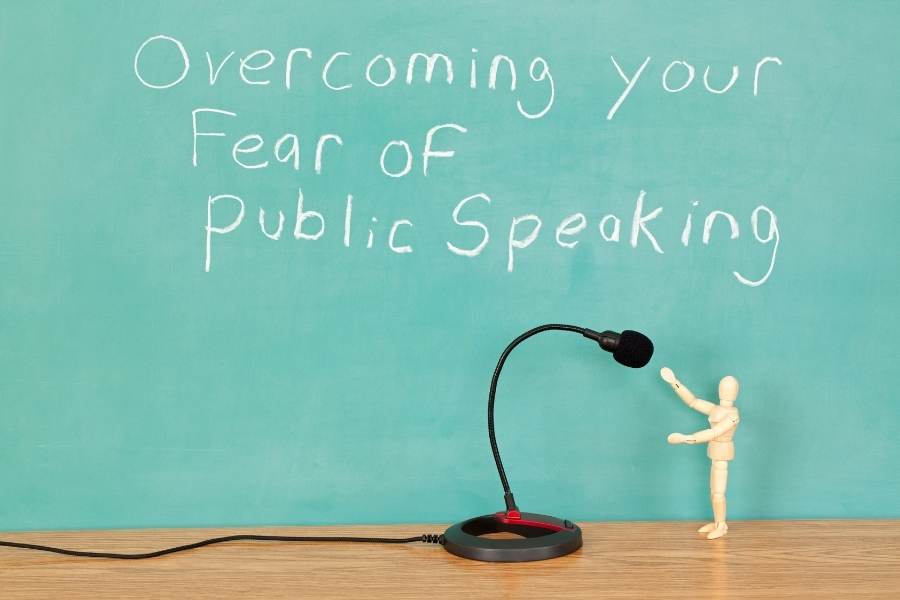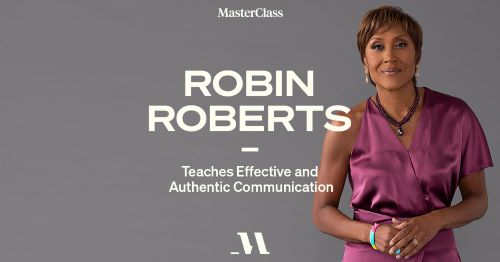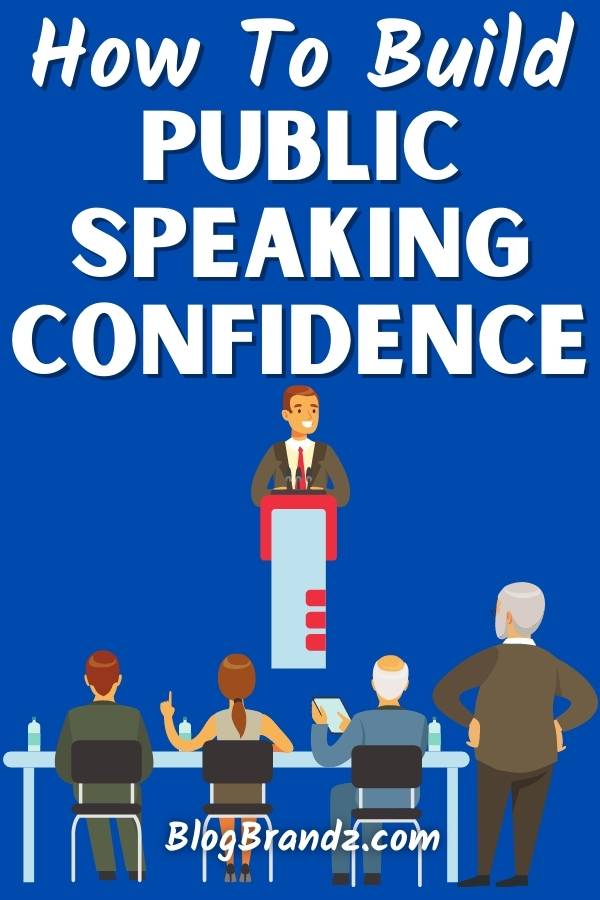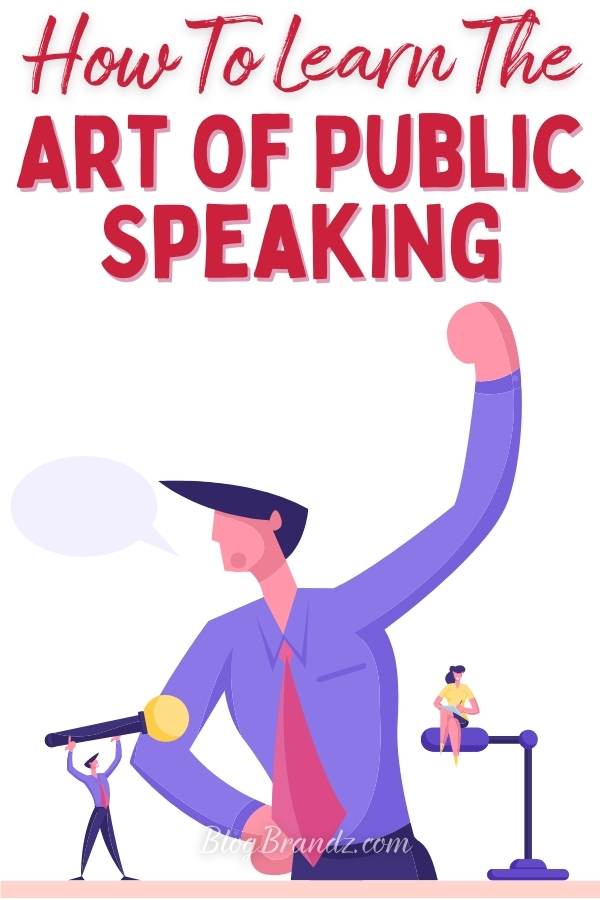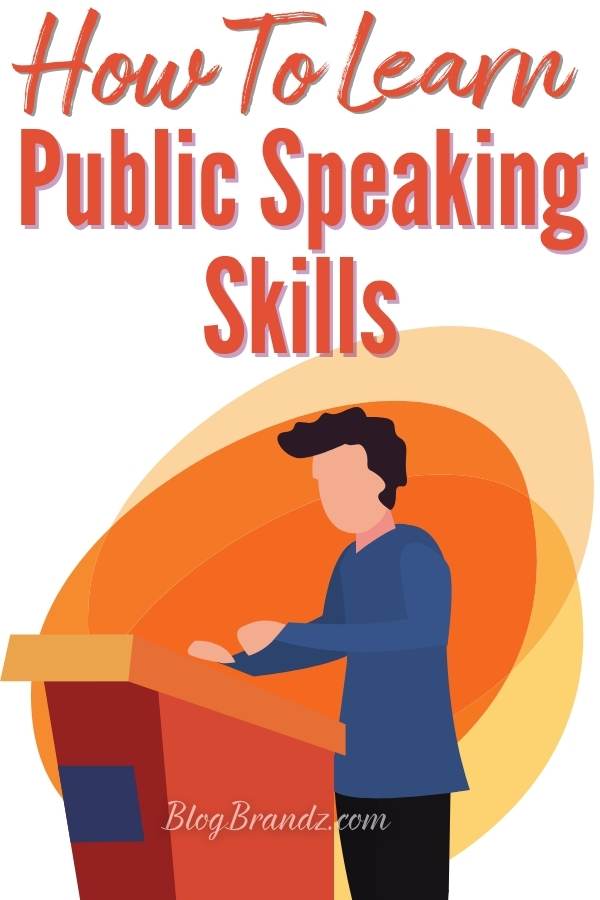Want to overcome speech anxiety and learn the art of public speaking? These tips from the best public speakers will help you learn public speaking for success.
If you want to grow in your career, communicate effectively with your team, and become a leader in your organization, one of the most important communication skills to learn is public speaking.
Some people are naturals at public speaking and communicating with audiences, such as politicians or good college professors. But most people are not good at making speeches and the vast majority of people would rather get a root canal than have to speak in front of an audience.
However, public speaking is a communication competency that is highly valued for effective communication in an organization. Excellent public speaking skills allow effective communication with team members, colleagues, and the media.
In fact, bad public speakers often find it harder to grow in their careers and get promoted as the higher up you go the more likely it is that you’ll be called upon to give a speech or a training session to your team.
Even a virtual public speaking session involves talking in front of a crowd, delivering information to people. The ability to communicate effectively is so important for any leader that many top CEOs hire public speaking coaches for public speaking skills training early in their careers.
If you’ve been called upon to deliver a speech, you’re probably at a stage in your life where your thoughts are worth something to other people. This means they appreciate your talent or skills in a particular field and want to know what you think.
But if you have a horror of public speaking, how do you go about becoming a public speaker? Almost anyone can overcome speaking anxiety and start speaking with confidence if they know how to prepare a speech and get some public speaking training.
Contents
How To Learn The Art Of Public Speaking
These tips on public speaking for beginners will help you overcome public speaking anxiety, learn public speaking and presentation skills, and even help you start a professional speaking career.
#1. Overcome public speaking anxiety
The fear of public speaking is only one of a group of anxiety-related issues known as social phobias but it is probably the one that affects most people. The way your body reacts to these situations comes from signals in the brain that can cause physical symptoms including:
- Dry mouth
- Excessive sweating
- Palpitations
- Blushing
- Trembling
In more extreme cases, an overwhelming feeling of anxiety takes over, sometimes leading to a full-blown panic attack. The good news is that with some public speaking training, you can learn how to overcome public speaking anxiety.
Remember that you’re not alone if you suffer from a fear of public speaking. There are very few of us who feel comfortable about getting up on a stage or talking in front of a crowd of people.
Learning how to overcome speech anxiety and the fear of public speaking is more a matter of knowing how to prepare yourself mentally. Preparing for a public speaking event with practices like breathing and relaxation can help calm your public speaking nerves.
If calming your public speaking nerves appears to be an uphill task, it may be helpful to understand that our fears and anxieties exist because our mind believes it needs to protect ourselves from what could possibly be a traumatic experience.
In the case of public speaking, this is often the fear of failure, humiliation, being seen as an imposter, or a number of other unique fears and phobias.
If you’re terrified of public speaking in front of a crowd or have severe public speaking anxiety, a public speaking course like the Powerful Public Speaking Hypnosis Course by Mark Tyrrell will help you examine the reasons behind your fears and help you with your unique needs.
As you follow his journey from a presentation panic attack to confidently speaking to an audience of 500, you’ll learn how to calm your public speaking nerves, overcome speech anxiety, and get over the fear of public speaking.
Hypnosis is one of the most effective speech anxiety cures that can genuinely help you overcome a phobia, so this is one of the best ‘fear of public speaking courses to help you overcome your fear of public speaking.
You’ll also learn how to start speaking with confidence and master the art of giving inspirational, memorable presentations in front of large audiences, without the fear and anxiety that make you want to run and hide in this speaking training course.
#2. Learn the 3Ps of public speaking
The 3Ps of public speaking – Prepare, Practice, Perform. Here’s how to learn and implement them.
Prepare
The first P of public speaking is preparation and you can give a confident speech if you really prepare well. Preparation may sound like the most basic, banal, and trivial thing, but it is the basis of success in any field.
Many experts have studied speech writing and come up with useful tips to help write an oratorical speech. For expert speech writing tips, just download Brian Tracy’s secret formula for writing a speech.
It will help you create an outline for a public speech in 5 minutes and you’ll also get access to his public speaking lessons that you can use over and over for public speaking mastery.
Here are some more tips to prepare before a speech that will help take away the feeling of panic, and manage the anxiety of public speaking.
- Take a deep breath and relax. This will ease up your tight muscles and help you focus on your speech.
- Don’t worry that your audience is smarter than you. Remember that most of them don’t know more about your topic than you do.
- Ward off physical distractions. Eliminate details that can distract you such as uncomfortable clothing and accessories that are irritating to the skin. Wear clothing that you’re comfortable in.
- Stay nourished. Eat at least three hours before your actual speech. It will provide you with the energy your body and mind need.
Practice
Get enough practice and repeat your speech as many times as you can. Rehearse and practice your speech again, and again, and again in front of the mirror.
Professional speakers use this practice to observe their facial expressions and body language and become more aware of the expressions and gestures they make when speaking.
Practicing in front of a mirror will also help in timing your speech, and pre-setting spots to change your tone, speed, and rhythm.
You can also record a video of yourself as you give your speech to friends or family (or in private) and play it back to see how you sound and whether you need to modulate your voice and speak louder or softer.
Perform
Now that you have spent some time practicing in front of a mirror, you’re going to have to live it out at a venue where you can give relaxed speeches.
Your practice will have given you the reassurance to give speeches or presentations in front of public speaking organizations like the Toastmasters public speaking groups.
In fact, many motivational speakers learned their public speaking skills and speechcraft by giving Toastmasters speeches, and you can find supportive and non-judgmental people of all experience levels here.
These are people who want to help you succeed and will help you build confidence in public speaking. If you don’t have a local Toastmasters chapter, you look up the local Rotary club or other organizations that are always looking for motivational speakers.
Alternatively, you can search Google for “public speaking classes near me” or “public speaking courses near me” and look for public speaking classes for adults in your locality.
#3. The first 3 minutes are crucial
So you’ve landed your first public speaking engagement. You’ve prepared and rehearsed and are ready to give your best presentation ever. First size up your audience:
- Who is the average person coming to your speech?
- What do they know?
- What do they need to know?
- What will inspire them?
- What will make them listen carefully to what you have to say?
- How will you get them to appreciate your speech?
Think about your entrance and the first 3 minutes of the speech. Pay attention to how you walk in, and project confidence and calm. Don’t rush anything, even if you’re late or under a tight schedule.
Do everything slowly and thoughtfully. Show the room you’re entering your speech zone. Make sure you have the attention of the crowd and start strong. Be confident, talk about things you know well, and let your experience shine through.
Choose the words of your opening carefully, and trust yourself. People feel that, and if you do it right, you will own your audience.
As you begin, you have exactly 3 minutes of your presentation to grab the audience’s attention and build rapport to ensure they buy into what you have to say.
Why are the first 3 minutes of your public speaking engagement the most important period of your presentation? In the first 3 minutes of your presentation, your audience is sizing you up.
This is when their attention is naturally high and focused. They’re deciding whether they like you and whether you’re worth listening to. This is when they decide whether to hear you out or not.
First impressions count and you have only one chance to make a good one. If you lose your audience in the first 3 minutes, you’ll be playing catch-up for the rest of the presentation.
In this crucial moment, before presenting any material, you need to build rapport with your audience. Rapport is a prerequisite for effective communication.
When people like each other, they like each other. When you have built rapport with your audience, they will acknowledge and engage with you and your presentation.
“When people are like each other, they like each other.”
You can build rapport with your audience by:
- Using the words they use.
- Using the same tonality.
- Pronouncing words the way they do.
- Using the same gestures and postures.
People create bonds with each other through shared experiences. Tell a story that shows how much you are like them. Meet as many members of your audience as possible before the presentation and build rapport with them individually.
Right from the start, let your audience define their own expectations and do your best to meet those expectations. Pay attention to how they respond to your speech and don’t be afraid to improvise if you think it will get a better response.
Experiment with different types of openers to see which ones build more rapport for you and your audience. Be flexible, use as many different openers as possible with different audiences, and evaluate your results.
The ones that build more rapport with your audience are the best ones to use. Some openers you can test out are:
- Current events
- Stories
- Jokes
- Anecdotes
- Quotes
- Rhetorical questions
- Musical openers
If you’ve built enough rapport with your audience in the first 3 minutes of your presentation the rest of your presentation will go smoothly. You’ll have an engaged audience and will be able to have fun with them and be yourself on stage.
Start your presentation off on the right foot in the first 3 minutes and you’ll be on your way to giving a great speech or presentation.
#4. Become a great storyteller
There are stories everywhere. Great stories help to enhance and even transform our lives because most of us delineate our thoughts visually.
Speakers learn to retrieve and retell them to audiences as a way to demonstrate their humanity and caring; to open people’s minds to possibility thinking and how making mistakes will eventually lead to the courage to help them succeed.
Speakers are everyday people, ranging from teachers to grandparents, mountain climbers to cancer survivors. The platform gives them the honor and incredible responsibility of sharing their stories in a way that helps the audience “wake up.”
“Wait a minute, I can think and act differently about anything than I did previously,” people say when they hear a good story.
Stories develop themes. The themes chosen to illustrate the possibility of stories are:
- Relationships
- Choice
- Creativity
- Making a Difference
- Celebration
Be distinct. Consider some amusing thoughts. When you’re telling a story, live and relive it. Use props to enhance your humor. Most people have an attention span of six to eight minutes.
Your words must create an image in the audience’s mind so that they can remember your story, so pause when necessary and be in the now. This will strengthen your relationship with them.
In this Storytelling MasterClass, LeVar Burton, Emmy, Grammy, and Peabody Award winner, teaches you how to tell more dynamic, authentic stories by sharing his storytelling approach so you can connect authentically with any audience.
What’s important when speaking in public is giving your listeners something of value. Whether that be a new perspective, an interesting story, or even a laugh. It’s all about connecting with your audience and leaving them with something to remember.
Public speaking courses & resources
To master public speaking with effective speaking skills and public speaking strategies from famous public speakers, check out these public speaking courses and resources:
- Start Speaking With Confidence With The Best Public Speaking Coaches
- Public Speaking Hypnosis: From Petrified to Powerful in 10 Steps
- Brian Tracy’s Free 6-Figure Speaker Public Speaking eBook
- Brian Tracy’s Free 5-Minute Speech Creation Formula
- Brian Tracy’s Free Become a Professional Speaker Webinar
- Jack Canfield’s Train the Trainer Online Course
- 13 High-Stakes Communication Skills for Business Success
- Learn Soft Skills & Personality Development for the Future of Work
- Learn the Training Skills of a Facilitator with Coaching Training Courses
- Robin Roberts MasterClass on Effective & Authentic Communication
- George Stephanopoulos MasterClass on Purposeful Communication
- Speech Writing Checklist For Drafting A Speech
- How to Start Creating an Elevator Speech for Your Business
- Talk Like TED: The 9 Public Speaking Secrets of the World’s Top Minds
- How To Talk In Interviews: 3 Media Training Tips For Being Interviewed On TV
- Don’t Settle: Inspiring Steve Jobs Quotes & Personality Traits
© 2022 – 2024, Priya Florence Shah. All rights reserved.
Priya Florence Shah is a bestselling author and an award-winning blogger. Check out her book on emotional self-care for women. Priya writes short stories and poetry and chills with her two-legged and four-legged kids in her spare time.
Discover more from Business & Branding Tips
Subscribe to get the latest posts sent to your email.



